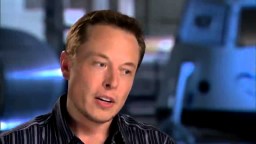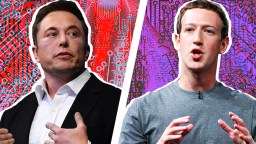Henry Ford and Thomas Edison had a bet they would energize the future together, tells the story Michio Kaku. But what happened was the opposite of what many people thought – Henry Ford’s vision for the internal combustion engine won out. Now, in the 21st century, Elon Musk’s focus on creating super-batteries will bring Edison’s ideas to final fruition. A new generation of batteries should be a gamechanger for solar energy as well.
Michio Kaku: Well, the cynic would say, “Ha! Solar energy? That’s for Hollywood millionaires,” and, “I’ve heard that so often, that we’re going to live in solar houses, and it never happened! So ha!”
Well, you see, there is a reason that we don’t live in the solar age, and it doesn’t have anything to do with solar cells at all.
You see, there’s a missing link that’s, why we don’t have wind power and solar power everywhere. And the missing link is something we forget, and that is: Storage! The battery.
A hundred years ago Thomas Edison and Henry Ford were friends; they would vacation together and they were rivals, of course, and they had a bet: what would energize the 20th century?
Well Edison said the battery. Well, Ford said no, it’s going to be the internal combustion engine.
Well, people said the solution to that is obvious: the internal combustion engine is dangerous because gasoline engines will explode. Batteries will not explode, but gasoline will, and having a gas station on every block? That’s ridiculous. That’s stupid.
So many people said that it’s obvious Edison is going to win; we’re not going to have gas pumps on every block; and we’re not going to have explosions take place on our highways.
Well, guess what happened? The opposite happened. And that is: Henry Ford was right, at least for the 20th century.
And now General Motors, General Motors recently announced that they can see the time when they will phase out completely the internal combustion engine. This is huge. Think about that.
50 percent of our carbon dioxide production comes from the transportation sector, and General Motors is already talking about phasing out the internal combustion engine. So what’s the problem?
The problem is the battery: the lowly battery that everybody forgets.
You see, we all know Moore’s law: computer power doubles every 18 months, but Moore’s law only applies to ultra violet etching on computer silicon wafers. It doesn’t apply for solar cells.
Storage is the basic problem—there’s no Moore’s law for the battery.
However, now that inventors are getting wind of this, we now see new energy, new creativity, new ideas, and so the price of battery power is of dropping by about seven percent a year. This means opportunities for the super-battery.
It’s no accident that Elon Musk of Tesla Motors has made the battery a priority. He wants to market these super batteries so that when the sun doesn’t shine and the winds don’t blow, you can still have large quantities of solar power.
He’s also marketing these batteries for industries, because what happens if you can’t necessarily make peak summer and peak winter demands of power?
Why should a facility have to generate this gigantic infrastructure to generate electricity, just for peak summer and peak winter? That’s where the super-battery comes in.
And so with the price of batteries dropping I think we’re going to see the economics of solar and wind turn the other way, so they are competitive with fossil fuels.






